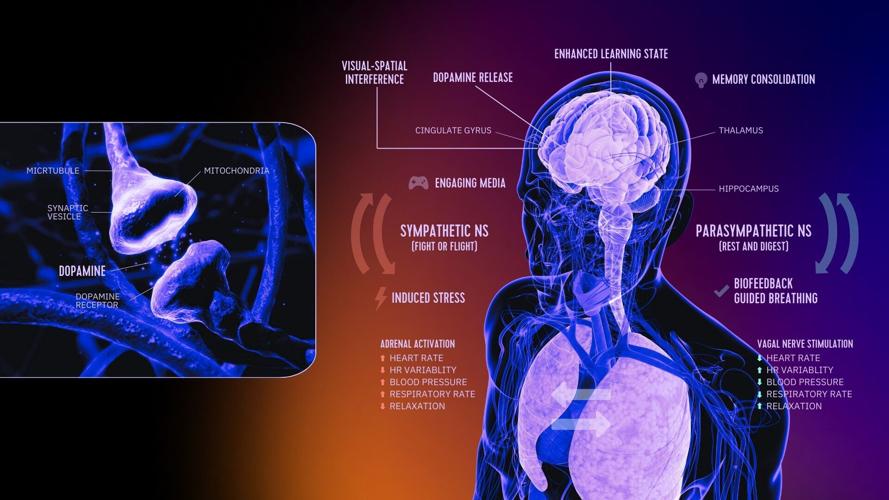
Unprecedented Bidding War Erupts Over Anysphere, Creator of Popular AI Coding Assistant Cursor
Technology News
Zaker Adham
09 November 2024
14 September 2024
|
Zaker Adham
Summary
Summary
Starting your day with a quick game of Wordle can be surprisingly refreshing. According to DeepWell DTx, there's scientific evidence supporting the idea that playing games can improve our mental well-being. Recently, DeepWell received FDA clearance for its biofeedback software development kit, which supports the use of video games to treat stress.

With this FDA approval, DeepWell’s biofeedbackMental Health Crisis: tools are now available over-the-counter, allowing patients to use these games alongside other treatments for stress or hypertension. As Medicare considers reimbursing doctors for digital therapy software, DeepWell’s games might soon be eligible for reimbursement.
FDA-approved medical devices don't have to be exclusively for medical purposes. For instance, Apple’s AirPods Pro recently received FDA approval to function as hearing aids. Similarly, consumer products like the Garmin watch and certain Apple Watch apps have been approved to monitor conditions such as atrial fibrillation and Parkinson’s disease. With rising rates of anxiety and depression in the U.S., regulators are exploring unconventional solutions like gaming developer kits.
“We’re recognizing the mental health crisis and the limited resources available,” co-founder Ryan Douglas told TechCrunch. “Our toolkit connects media creators to the reimbursement stream for digital mental health.”
Douglas, who has over 20 years of experience in designing therapeutic hardware and software, holds more than 30 patents for treatment systems and medical devices. He is currently the president and CEO of NeuFluent, a venture studio for neurological products, which includes DeepWell.
DeepWell’s products are intended to supplement, not replace, traditional talk therapy. “We’ve seen incredible results, sometimes four times more effective than talk therapy or medication,” Douglas said. “But combined with talk therapy, the results are extraordinary.”
As a proof of concept, DeepWell released a virtual reality game on Meta Quest called Zengence, described as a “mental health action shooter.” The game uses the headset to monitor the player’s breath, making it easier to defeat enemies by maintaining a consistent breathing pattern.
Games don’t need to have explicit therapeutic mechanics to be beneficial. Even popular games like Super Mario or Animal Crossing can have positive effects, according to Douglas.
Moderation is key when it comes to gaming. DeepWell suggests that playing a game for 15 minutes, three times a week — the “dose” approved by the FDA — can yield noticeable benefits.
“Being in a playful, dopaminergic state while gaining agency and positive interaction makes you more bioavailable to learn new things about yourself,” Douglas explained.
Playing engaging games can also provide a break from negative thoughts and feelings. “If you’re playing Tetris, you can’t dwell on negative thoughts,” Douglas said.
The limbic system, which reacts to stress, can learn new coping mechanisms through gaming. Practicing stress management in a game can influence how we handle real-life stress.
“We see people with high stress levels, including veterans, playing games that offer jump scares and thrills,” Douglas said. “They seek control over environments they previously couldn’t control.”
Currently, DeepWell is approved to treat stress and hypertension, but Douglas hopes the technology will eventually address PTSD, epilepsy, sleep disorders, and memory disorders. He believes these principles apply to other forms of entertainment as well.
“That’s why people leave concerts or movies feeling differently,” he said. “In that time, they’ve overcome a mental hurdle or shifted their thinking in ways they couldn’t without that stimulus.”

Technology News
Zaker Adham
09 November 2024

Technology News
Zaker Adham
09 November 2024

Technology News
Zaker Adham
09 November 2024

Technology News
Zaker Adham
07 November 2024